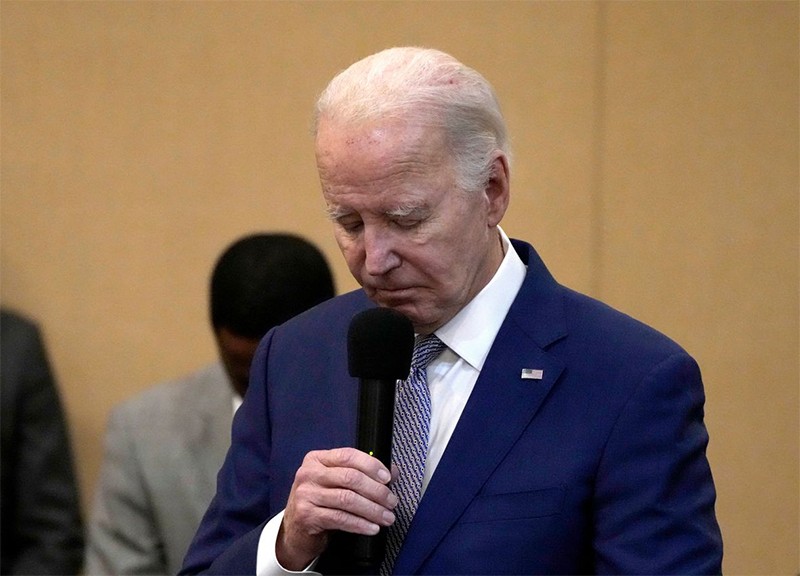
The region is on fire because the U.S. bid for détente with Iran has utterly failed.
By Walter Russell Mead. WSJ
As the White House ponders its response to the attack on Tower 22, the U.S. military outpost in Jordan, the news from the Middle East could hardly be worse. From Gaza to the Red Sea and from Jordan to Iraq, a stream of unprovoked attacks by Iran and its proxies are driving President Biden into the greatest crisis of his presidency. This isn’t what the president or his top aides expected or hoped. In January 2021, Team Biden anticipated a quick agreement with Iran that would put Middle East tensions on ice while the U.S. focused on countering China’s rising power in the Indo-Pacific. But that was not what the mullahs wanted, and Iran, not the U.S., has controlled the pace and direction of Middle East politics since Mr. Biden took office.
Many Americans find our involvement in the Middle East both frustrating and confusing. It is frustrating because peace and stability seem impossible and because American efforts to promote democracy or otherwise pursue a values-based agenda in the region produce nothing but disappointment. It is confusing because many Americans simply don’t understand why our country keeps investing so heavily in a faraway place when we face many urgent problems at home and in other parts of the world.
Nevertheless, 10 successive American presidents repeatedly learned, often to their chagrin, that the Middle East can’t be ignored. In 1973, Richard Nixon faced an oil embargo and the rise of the Organization of the Petroleum Exporting Countries. Gerald Ford’s short presidency was overshadowed by inflation driven in large part by high oil prices. The seizure of the U.S. Embassy and dozens of hostages during the Iranian revolution gutted Jimmy Carter’s hopes for re-election. Between the 1983 Beirut bombing that killed 241 American military personnel and the Iran-Contra scandal, the Middle East gave Ronald Reagan the worst moments of his presidency. George H.W. Bush fought the Gulf War. “I am a failure and you have made me one,” Bill Clinton told Yasser Arafat after the Palestinian leader rejected Mr. Clinton’s proposed solution to the Israeli-Palestinian conflict.
The Middle East continued to haunt American presidents during the 21st century. The Iraq war defined the presidency of George W. Bush. Barack Obama desperately wanted to avoid Middle East entanglements but found himself bombing Libya and fighting ISIS in Syria and Iraq even as the battle over the Iranian nuclear deal loomed over his second term. The Abraham Accords and his struggle with Iran helped define President Trump’s foreign policy, and now Mr. Biden, much against his wishes, faces the possibility of American involvement in a regional war.
As these 10 presidents learned, what happens in the Middle East often doesn’t stay there. The region’s dominant role in global energy markets means that even countries like the U.S. that don’t depend on Middle Eastern oil can’t escape the consequences if regional instability disrupts the flow of oil and gas to places like Europe, India, China and Japan. Bitter ethnic, ideological and sectarian conflicts, civil wars, long-running insurgencies and political instability create world crises and, as in the case of the 9/11 attacks, threaten American security at home.
Five decades of often painful experience should teach Americans that we can neither “fix” the Middle East nor ignore it. We are not going to turn Middle Eastern countries into a collection of peaceful democracies. We aren’t going to eliminate the ethnic, social and religious conflicts that keep the region on edge. And we aren’t going to be able simply to walk away.
Given the limits on American resources and the range of our global interests, America’s Middle East policies must focus on essentials. We need to prevent aspiring hegemons like Iran, Russia and China from acquiring the power to dominate the region or interrupt the flow of energy to key economies. We also need to limit the effect of the Middle East’s regional conflicts, terrorist movements and radical ideologies on the wider world.
The Middle East is on fire today because the Biden administration’s core regional strategy—to reach some kind of détente with Iran—has catastrophically failed. Iran, closer every day to nuclear weapons, is at the point of upending the regional balance of power even as its Houthi proxies have largely blocked trade through the Red Sea. Meanwhile, the Taliban’s humiliation of the U.S. in Afghanistan, the shock of Hamas’s Oct. 7 attack on Israel, and the success of jihadist movements across much of Africa have combined to breathe new energy into global terror networks.
The past 50 years teach that strategic failure in the Middle East destroys presidencies. As the White House scrambles to respond to Iran’s latest attack on American forces, let’s hope it recognizes how high the stakes have become.














